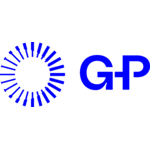Last weekend I was folding laundry (exciting life) and in the background had an interview playing with Kevin O'Leary aka "Mr. Wonderful" of Shark Tank fame.
He may be the most controversial and sometimes brutal of the Sharks. But, he's also one of the smartest in my opinion.
In this particular interview he made a really interesting observation: 100% of the companies they've invested in have been able to explain what they do in 90 seconds or less.
That may not sound like a great feat. But think about all of the pitches you've heard - from vendors, from employees, from a friend or family member - that have rambled on and on.
It's 5 minutes, 20 minutes, 45 minutes into a conversation - and you still have no idea what they are talking about. Apparently, that happens on Shark Tank too, we just don't usually see those people walk out with a deal.
The reality is that we are all walking around half drunk on internet fueled dopamine. Our attention is a precious commodity, and keeping it is insanely hard.
Those who can tell a compelling story quickly are going to succeed, and vice versa.

The pitfall of the long pitch
Many people think that their idea is very complicated, and therefore needs a lot of explanation. They are incorrect.
I used to work in venture capital and would listen to 3-5 pitches/day.
The calls that lasted 20 minutes were the best. The CEO explained the business in 1-2 minutes. They then explained the traction, barriers to entry, market, and how much they were raising. Very simple.
They may have started something as relatable as a new eCommerce company, or as esoteric as a virtualization software business. It didn't matter.
The worst pitches were an hour long. The CEO would spend 20 minutes explaining what they did. 5 minutes in I was either bored or confused. These companies never got funded, and almost all went bankrupt.
Part of their failure was a lack of attention from their audience. How can you get funding or customers or employees with such a weak pitch?
I believe a larger part was that they were still trying to figure out for themselves what they were doing - and so they'd go into each detail as if it mattered. To them, it all mattered, but to their audience it was just confusing.
Internal buy in for HR
The lesson for HR teams is simple. Get your pitch for a new initiative down to a short, punchy narrative that covers they key aspects: Problem, use case, vendor, cost, MVP, ROI.
Just like I've seen a lot of CEOs struggle to explain their company, I've seen a lot of HR teams need more structure and time constraints (re:the Mark Twain quote "if I had more time, I would've written a shorter letter,").
Spending 20 minutes talking in abstractions about a poor recruiting process and then summarizing with "we need a new ATS" isn't going to get the outcome you're looking for.
We've all heard pitches that start with "What this initiative will do is, create a really interesting way for the essential building of our ability to capture....ramble ramble ramble" - our brain is thinking about picking up the kids, what's for dinner, or the next meeting after the first 3 sentences tell us nothing that matters.
The lesson for HR Tech vendors
Of course, to the vendors who read our site, the lesson also applies.
We hear a ton of HR Tech demos each month. Sometimes I'll write down what I think their revenues are about half way through the call based on their initial pitch.
I can usually get within an order or magnitude with my guess (0-1 mm, 1-10 mm, 10+). Why is that?
The vendors who are getting the most traction have a clear target market and value prop. They may have a really complicated and feature rich product, but they know how to distill it so that someone knows to devote more brain power to it, or not.
I haven't heard the pitch for Bamboo HR in a while...but my guess is it's something like "Recruiting and HR software for SMBs." That is despite a very complicated and feature rich product.
It takes a lot of work, and sometimes years to refine a pitch to something so simple. But, the best companies are great at doing this, especially the ones that have a very complicated and novel product.
90 seconds or less
So, the next time you're pitching a new idea, just remember the 90 second rule. It's true on Shark Tank, it's true in your organization, and it's true basically everywhere else in our attention starved world.



























